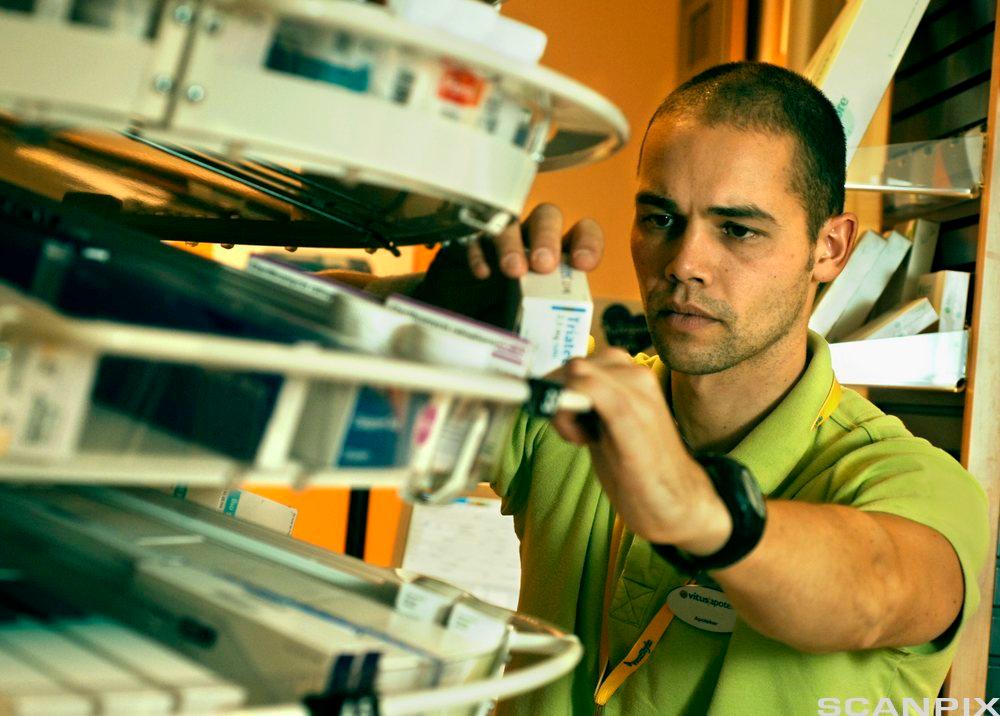Lydopptak
A Pharmacy Technician in the UK
This interview will give you an idea of what it is like to work as a pharmacy technician in the UK.

Pharmacy technician taking medicine from the shelf. Image: Jens Sølvberg / CC BY-NC-SA 4.0
Before listening, check that you know the meaning of the following words: pharmaceutical, counter (in a shop), prescription, dispense, stock, blister pack, accuracy and tablet.
Listen to the following interview with a pharmacy technician in the UK and find out:
- Where she works. (type of company - large/small, etc)
- Where about in the UK she works.
- Why she chose this profession.
- What type of tasks she has to do on a typical day at work.
- What personal qualities she suggests are needed by a pharmacy technician.
- Does she describe any work processes or services that she provides?
- What she likes best and least about her job.
- How she thinks this line of work will change in the future.
- Where she sees herself in 5 - 10 years' time.
Pharmacy Technician- Interview
0:00
-0:00
Audio: James Vyner / CC BY-SA 4.0
After you have practised, add more dialogue for some of the following situations:
- Mrs. Smith’s prescription has not come through yet from the doctor. The pharmacy technician suggests some reasons why it might be delayed. Mrs Smith is offered a seat where she can wait.
- The prescription is for a blister pack and will take five minutes to make up.
- Mrs. Smith wants to buy the painkillers without a prescription and is told that she has to go to her doctor first.